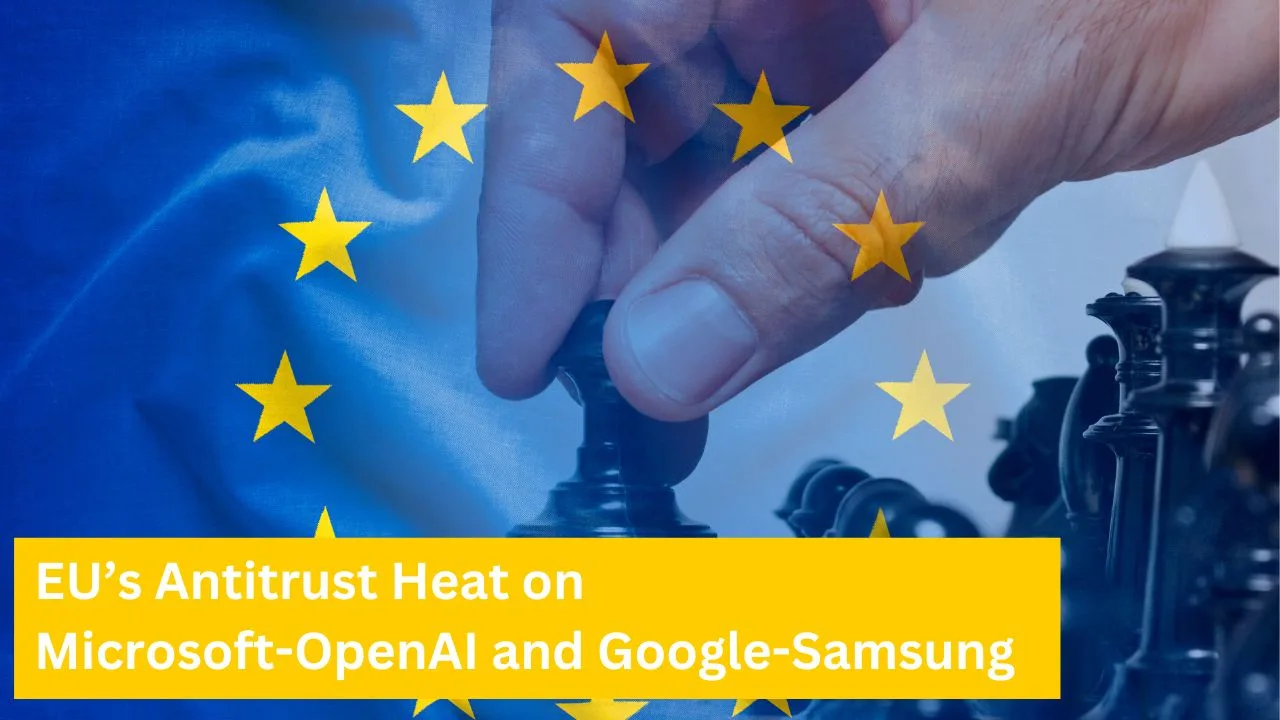The European Union( EU) has ramped up its antitrust scrutiny on artificial intelligence( AI) deals, zeroing in on prominent collaborations between Microsoft- OpenAI and Google- Samsung. Margrethe Vestager, the European Commission’s administrative vice chairman for competition policy, stressed the rapid-fire development of AI and revealed multiple primary examinations into colorful AI- related request practices. Her enterprises center on implicitanti-competitive practices by tech titans, which could stifle competition and invention in the burgeoning AI sector.
Harnessing the Power of AI for Unprecedented Impact
AI has unnaturally converted the tech geography, with major players like Microsoft, Google, and OpenAI leading the charge. These companies have driven significant advancements in AI capabilities, impacting diligence ranging from healthcare to consumer electronics. As AI technologies continue to evolve, the stakes in maintaining fair competition have noway been advanced.
Microsoft’s Partnership with OpenAI
Microsoft’s multibillion– bone cooperation with OpenAI is one of the most notable collaborations in the AI assiduity. Starting in 2019, this cooperation has seen Microsoft invest heavily in OpenAI, furnishing pall computing coffers via its Azure platform and integrating OpenAI’s advanced models into Microsoft’s products. crucial advancements from this collaboration include the GPT- 3 language model and ChatGPT, both of which have set new marks in AI.
Request dominance enterprises
However, this partnership has raised concerns about potential monopolization and barriers to entry for smaller AI companies. Vestager mentioned that the European Commission initially investigated the Microsoft-OpenAI deal, but later closed the case after finding that Microsoft did not acquire control over OpenAI. Nevertheless, concerns persist about whether similar partnerships could result in one party gaining undue influence over the other.
EU’s primary examinations
The EU’s primary examinations originally concentrated on whether the Microsoft- OpenAI deal violated EU junction rules. While the original review was dropped, the commission is now checking the deal under antitrust rules aimed at precluding vituperative geste
by dominant request players. This shift underscores the EU’s fidelity to maintaining competitive requests.
Exclusivity Clauses and Competition
One critical aspect of the disquisition is the exclusivity clauses within the Microsoft- OpenAI cooperation. The EU seeks to determine if these clauses could harm competition by limiting other companies’ access to essential AI technologies. Vestager emphasized the need to understand whether similar exclusivity agreements could disadvantage challengers, indicating a thorough examination of the cooperation’s request impact.
Google and Samsung’s AI Collaboration
Google’s AI collaboration with Samsung also attracts significant attention. This cooperation combines Samsung’s tackle moxie with Google’s AI prowess to develop innovative consumer electronics. Integrating Google’s AI algorithms into Samsung bias enhances functionalities similar as voice recognition, camera capabilities, and substantiated stoner gests . While promising advanced features for consumers, this alliance raises questions about request fairness.
Competitive Fairness in AI requests
The EU is particularly concerned about how the Google- Samsung cooperation might affect request competition. The integration of Google’s AI into Samsung bias could give these companies a substantial request advantage, potentially confining other enterprises’ access to critical technologies. This script could affect in a many companies dominating the request, stifling invention and reducing consumer choice.
Tech titans’ Response
In response to the EU’s scrutiny, Microsoft and Google have reiterated their commitment to nonsupervisory compliance while continuing to introduce responsibly in AI. Both companies punctuate the implicit benefits of their AI enterprise, including advancements in healthcare and sustainability. They argue that these hookups are vital for driving invention and furnishing value to consumers.
Conclusion
The EU’s disquisition into AI deals involving tech titans like Microsoft and Google underscores the significance of fair competition in the fleetly evolving AI sector. By examining implicit anti-competitive practices, the EU aims to ensure that the AI request remains dynamic and inclusive, fostering invention and immolation openings for lower enterprises. This balanced approach is pivotal for the sustainable growth of AI technologies, serving both businesses and consumers.
FAQs
1. What urged the EU to probe these AI deals?
enterprises about implicit anti-competitive practices and the growing influence of major tech companies in the AI request.
2. How could these examinations impact AI assiduity?
They could lead to nonsupervisory measures promoting fair competition, icing lower AI enterprises can contend and introduce.
3. What are the implicit consequences for Microsoft and Google?
Possible forfeitures and needed changes in business practices to maintain fair competition.
4. How do these hookups profit consumers?
By driving invention and developing advanced AI technologies that enhance consumer products and services.
5. What does the future hold for AI regulation in the EU?
Continued visionary regulation fastening on fair competition and precluding monopolistic practices.









